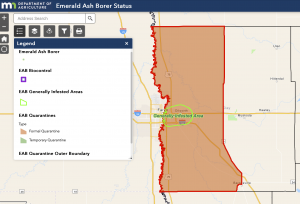
Hi, I’m Erica and I’m an environmentalist. I like to be outside, I eat (for the most part) a vegetarian diet, I believe all living things on Earth have intrinsic value and I would gladly hug a tree if you asked me to do so. I will be co-writing this column with Sarah Liebig and we will be focusing on environmental issues related to students. Let’s clear something up, though. This column isn’t going to be about saying how much I hate humanity, that we should only ever care about the environment, or that you’re terrible if you throw away that plastic bottle instead of recycling it. That kind of shaming, I think, gets us nowhere. (Though I definitely think it’s valuable to care about other species and you should definitely recycle if you can).
Why? Because we’re all in this together (cue High School Musical song and dance). Maybe you don’t identify as an environmentalist, and that’s fine, but you still live on this planet and should try to do something. Though the threats might not be immediately visible in our everyday lives, environmental issues concern everyone, not just environmentalists. The cool part is humans can play a positive role in the environment if we so choose. At Concordia, the word sustainability (ever heard of it?) is what’s used to describe ways we can positively influence the natural world around us. I think this idea can also help better illustrate the value in working together as a species to create change.
The word sustainability is all about sustaining life on this Earth for future generations. To help specify that idea, the term is broken up into three different rings of influence: environment, economy, and political/social relationships. Each one of these rings is interconnected with the other and is ideally considered when thinking about environmental issues. For example, you could say the fracking of oil in North Dakota has brought great short-term economic benefits to North Dakota and has employed many people. However, the fracking boom would not be considered sustainable because it does not fit within the long-term goals of the three sustainability rings. With every boom there is always a bust, meaning the massive amount of economic prosperity of oil is only temporary. Socially, the many people moving to the area has caused issues with housing, providing emergency services, and the way local people live in the area now. Finally, the environmental impacts of fracking itself and the mass development of the region will leave impacts on ecosystems there for a long time. It is difficult to call a process that doesn’t consider all three rings a sustainable one.
So that’s an example of a way humans have negatively impacted the environment. Since our impact on the world is constructed by all of us, however, that means we have the opportunity to do something about it as well. The possibilities are endless: we could invest in solar energy, consume less, close the income gap, or eat local food. None of us will ever be perfectly no-impact people, but that doesn’t mean we should hate humanity and be all doom and gloom about the future. Moving forward to a better, more environmentally friendly world means sticking together to admit mistakes, to move forward and to think of ourselves as only one important part of the world, among many. So go hug a tree or a friend, remind yourself that we’re all in this together (maybe sing the song and do a little dance), and then do something. If you’re in need of some inspiration, stay tuned to this opinion column to read about environmental issues that apply to you!









Be First to Comment